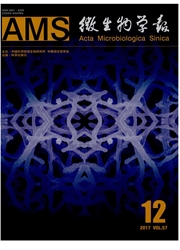

 中文摘要:
中文摘要:
【目的】探讨乙肝感染中gp96上调的机制及其可能发挥的病理学机制。【方法】首先通过生物信息学、Real-time PCR、荧光报告基因和Western blot研究NF-s:B激活gp96表达的机制。进一步通过在肝细胞中过表达或敲低gp96的水平,运用CCK-8法和流式检测分析gp96对肝细胞增殖、凋亡,和细胞周期的影响,通过检测肝细胞EMT发生和细胞集落形成实验,分析gp96对于HCC发生的作用。【结果】NF-KB与gp96启动子上NF-KB结合位点结合,激活gp96的表达。实验结果显示,gp96能够促进肝细胞增殖、抑制凋亡,促进细胞周期从静息期向分裂期的转化,同时促进肝细胞EMT发生和细胞集落的形成。【结论】NF-KB通过活化gp96启动子上调其表达,为HBV慢性感染上调gp96的机制提供了线索,同时提示gp96在慢性炎症引发HCC过程中发挥重要作用。
 英文摘要:
英文摘要:
[ Objective] To investigate the mechanism of gp96 raised during hepatitis B virus (HBV) infection and the pathological mechanism. [ Methods ] The mechanism of NF-KB activating gp96 expression was determined by bioinformatics analysis, luciferase reporter assay, real-time PCR and Western blot. The effect of over-expression and knockdown gp96 expression by transfection or RNA interference on hepatocyte proliferation, apoptosis and cell cycle was examined by CCK-8 and flow cytometry. The role of gp96 for HCC development was determined by epithelial-mesenehymal transition (EMT) and colony formation assay. [ Results] NF-kB significantly increased the gp96 expression by binding to the NF-kB binding site. Over-expression and knockdown studies both show that gp96 promoted hepatocyte proliferation, inhibited apoptosis, and induced GO/G1 to S phase cell cycle progression. Moreover, gp96 induced epithelial- mesenchymal transition and increased colony formation ability of hepatoeytes. [ Conclusion ] Our results therefore provide insights in chronic HBV infection-induced gp96 expression, and indicate that elevated gp96 may contribute to HCC development during chronic inflammation.
 同期刊论文项目
同期刊论文项目
 同项目期刊论文
同项目期刊论文
 期刊信息
期刊信息
